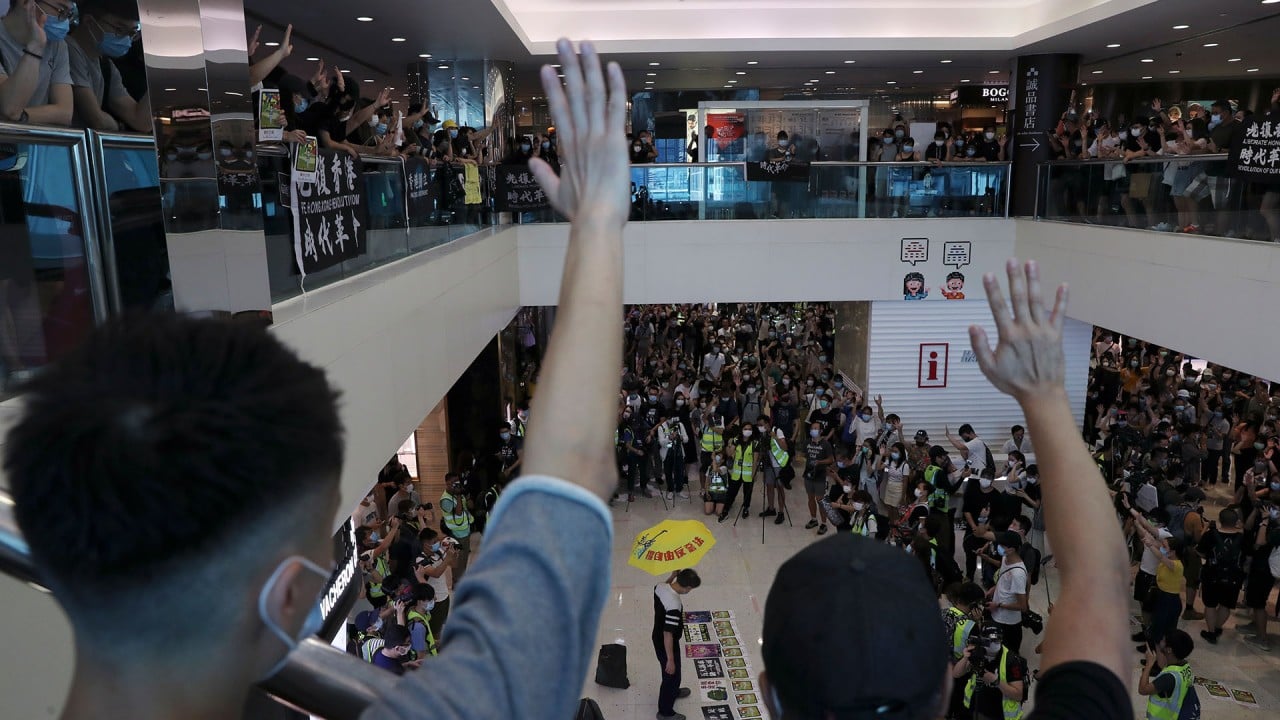
Exclusive | Hong Kong’s biggest shopping centre Harbour City offers rent concessions and shocks tenants with lease renewal terms
- Tenants at Harbour City in Tsim Sha Tsui have a July 24 deadline to accept the retail landlord’s terms or forgo rent concessions
- Some have expressed discontent and shock over the tactic, given the state of the industry and a third wave of coronavirus cases hobbling the economy
Hong Kong tops previous daily record of 108 Covid-19 cases: sources
Besides committing to new leases, Wharf also requires its tenants to meet other conditions to receive a 40 per cent retroactive discount to rents in May, according to the July 10 letter. Wharf had earlier halved rents for tenants from February to April.
Among other requirements, they will need to have paid up before July 15 all their outstanding rents, charges and arrears accrued as of June 30, according to the letter.
The offer “is a one-off measure” to deal with the current situation faced by the retail industry and does not mean more are in store, according to the letter signed by Veronica Chan, who is general manager of retail leasing and business development at Harbour City Estates.
“If we fail to receive your signed version of the Side Letter by 24 July or if you shall attempt to make any changes to our Side letter, we would treat it as your refusal to accept the arrangement … and in which event we would not consider offering you any rental concession for the month of May,” she said in the letter. “We would like to emphasise that we would not entertain any changes or amendments thereto.”
Chan and Harbour City Estates did not immediately reply to requests for comment on the matter.
While the tenants’ responses to the Harbour City’s letter were mixed, many have quietly expressed their disapproval of the tactic, according to an industry source who declined to be identified because of confidentiality issues.
Some of them are not signing, while several are signing by crossing out the lease renewal clause, the person said. Others have decided to sign for now and could still return the concession to the landlord when they decide to not renew the lease, the source added.
The practice of requiring lease renewal in exchange for rent concessions is rare, said Lilian Chiang, senior partner and head of the property department at law firm Deacons.
“There was actually no such thing in the past [until this year]. Currently, I have tenants asking me every day whether they could exit [the lease],” she said, adding that it would “shock you” that international brand names are also asking the same thing.
Hong Kong retail landlords set alarm bells ringing with profit warnings
Wharf may not be alone in employing the tactic. Link Reit, the biggest property trust in Asia, is said to have requested lease renewal before granting rent concessions, according to people with knowledge of the matter.
“There has to be give and take on both sides and any leasing agreement will only be mutual concessions and compromises,” said Link's spokesperson. “The closest thing to the arrangement is lease restructuring.”

03:36
Protesters gather in shopping malls across Hong Kong to chant slogans, stage singalongs
Every landlord has a different practice to retain tenants and avoid having too many vacant shops, which hurts the overall attractiveness of a shopping centre, Chiang added.
“Tenants tend to compromise with the new terms and conditions in exchange for rental concession, otherwise they might not be able to keep their business or pay rents or other operation costs to overcome this difficult period,” said Polly Chu, a partner at law firm Withers.
The letter is a way of rent restructuring by the developer or landlord to keep their tenants, she said. It may also suggest the landlord has confidence that the retail business will return to normal in the future, Chu added.
Tsim Sha Tsui is a tourist district that is among the hardest hit in the retail crisis. Yet, at the same time, it has recently usurped protest-hit Causeway Bay as the most expensive shopping belt in the city.
Harbour City is one of the most expensive shopping centres, charging as much as HK$1,000 per square foot on average, according to market sources.

